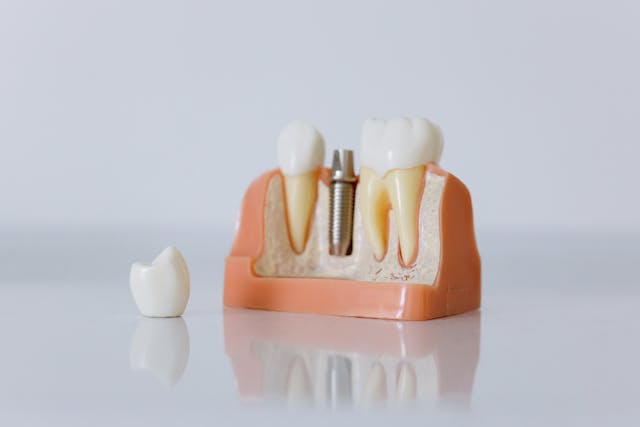Dental implants have become a sought-after solution in cosmetic dentistry. They offer a practical and aesthetically pleasing option for individuals who may have lost one or more teeth due to various reasons, including injury or decay. Far from just addressing the gaps in your smile, implants bring functional and aesthetic benefits.
Understanding Dental Implants
Dental implants are artificial tooth roots typically made of titanium. These implants serve as a foundation for fixed or removable replacement teeth. They replicate the function of natural roots, providing stability and helping restore the appearance and feel of your teeth. The process usually involves multiple steps, starting with a consultation to assess suitability, followed by surgical placement, and finally the attachment of the crown or prosthetic tooth.
Benefits of Implants for Your Smile
One of the visible benefits of dental implants is their ability to mimic the appearance of natural teeth. The crowns attached to the implants are custom-made to match the color, size, and shape of existing teeth, making them indistinguishable from natural ones. This feature makes implants an excellent choice for those prioritizing a natural and cohesive look.
Implants help fill gaps that might otherwise make individuals feel conscious about their smile. Regardless of whether a tooth is missing from the front or back of the mouth, implants enhance overall facial symmetry and balance. Dental implants also play a role in maintaining the structure of the jaw. When a tooth is lost, the bone beneath it may gradually resorb, potentially altering the facial structure over time. Implants act as artificial roots, stimulating the jawbone and preventing this type of bone loss. This stabilizing feature contributes to improved oral health and maintains the shape of your face, which can boost self-esteem.
Functional Benefits Supported by Dental Implants
Dental implants extend beyond aesthetics. They can provide functional benefits that contribute to a more comfortable and effective way of living. Unlike dentures, which may shift or cause discomfort, implants are designed to stay securely in place. They enable comfortable chewing and speaking, restoring functionalities often compromised by missing teeth.
Another practical benefit lies in their durability. With proper care implants can last for years. Unlike bridges or dentures, which may need frequent adjustments or replacements, implants often require minimal maintenance.
Oral Health Improvement
Choosing implants can also contribute to better oral health. Unlike traditional bridges, which may involve modifying adjacent teeth, implants do not require alterations to healthy teeth. By leaving surrounding teeth unaffected, implants help preserve overall oral integrity. Additionally, they make oral hygiene more straightforward. Implants are cleaned just like natural teeth, with brushing, flossing, and routine dental visits. Their ability to even out the bite is another oral health advantage. Missing teeth can cause neighboring teeth to shift, potentially leading to improper alignment and further oral health complications.
Take the Next Step Toward a Confident Smile
If you are exploring options to address missing teeth, dental implants present a viable solution that combines functionality, aesthetics, and longevity. They are designed to help restore confidence in your smile while improving oral health and daily quality of life. For individuals considering this option, consulting a qualified dental professional is a step toward assessing suitability and understanding the entire process. Reclaiming the comfort and confidence of a complete smile might be closer than you think.

